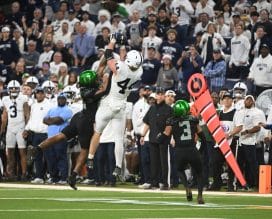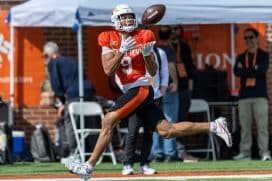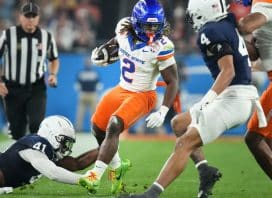Phillies
Top 25 Players to Ever Play a Game for the Phillies: No. 3, Steve Carlton
By Matt Albertson, Historical Columnist
Steve Carlton is one of the top five pitchers of the 20th century and probably the second best left-handed starter behind only Warren Spahn.
Carlton was acquired via trade from the St. Cardinals in exchange for then-Phillies ace Rick Wise, who just the year before hit two home runs – the only runs scored – and threw a no-hitter in the same game. But the Philadelphia Phillies traded Wise for Carlton, a member of the 1967 World Series champion Cardinals, who had a "down" year in 1971 when he went for 20-9 with a 3.56 ERA in 273.1 innings pitched.
Philadelphia Inquirer columnist Bruce Keidan analyzed the trade and said "both men have sound arms and bright futures, and both could be 20-game winners this season. If there is a long-range edge in this trade, however, the Cardinals are likely to have it. Wise, with his excellent control, could be a big winner for many years to come. Carlton will have to make considerable adjustments to become a finesse pitcher when the years deprive his baseball of its sizzle."
Keidan was wrong.
In seven years with the Phillies, Wise was 75-76 with a 3.60 ERA. He won 113 more games and posted a 188-181 record at the end of his 18-year career. Carlton came to the Phils with a career 77-62 mark, but won 252 more games at the end of his 24-year career, finishing with a 329-244 mark and a 3.22 ERA. Carlton earned induction into the Hall of Fame, while Wise did not. It was the best trade in Phillies history.
Carlton immediately proved detractors wrong in 1972 when he went 27-10 with a minuscule 1.97 ERA in 41 starts (including 30 complete games) in 346.1 innings pitched – all tops in the National League that season. His superhuman performance earned him the senior circuit's Cy Young Award. Carlton's 27 wins accounted for 46% of the team's 59 wins that year, the highest ratio of pitcher wins to team wins in the 20th century. The player's called the days in which Carlton started "win day".
"Lefty" won three more Cy Young Awards while with the Phillies, including one during the 1980 championship season, when he posted a 24-9 record with a 2.34 ERA in 304 innings pitched. Carlton was also perfect for the Phillies in the postseason with a 3-0 mark with a 2.30 ERA in four starts.
The Phillies released Carlton in 1986 after age caught up with him following the 1983 season. He caught on with the Giants for a few months before being released again, then signing with the Chicago White Sox. He signed with the Cleveland Indians prior to the 1987 season and was traded at the deadline to the Minnesota Twins for Jerry Perry. He retired in 1988.
Career Accomplishments
- 1994 Hall of Fame inductee
- 10-time All-Star
- Four-time National League Cy Young Award winner
- Two-time World Series champion (1967 with St. Louis and 1980 with Philadelphia)
*Awards were not factored into the formula
Career-Defining Moment
Carlton's entire career is a highlight reel, but his dominance as a pitcher was established in 1972 with his 27-10 record and minuscule 1.97 ERA in 41 starts (including 30 complete games) in 346.1 innings pitched – all tops in the National League that season.
But for Phillies fans, his role in 1980 surpasses any as he was a key cog in the wheel that brought the Phillies their first championship in 97 years.
Reasoning for ranking
Carlton scored 57 points in our formula. He totaled 84.1 WAR, averaging 3.5 WAR over his 24 seasons. He had 17 seasons of 2+ WAR, seven seasons at 5+ WAR and two season at 8+ WAR, totaling 48 points. His 329 wins rank 11th all-time, his 3.15 FIP ranks 187th all-time, his 8.06 H/9 ranks 142nd all-time, and his 7.13 K/9 ranks 129th all-time, totaling nine points
Carlton scored a 10 on our subjective importance scale because he was the most dominant Phillies pitcher since Grover Cleveland Alexander in the early 1900s. His excellence brought Philadelphia its first baseball championship since the Athletics won the World Series in 1930 and the first in team history.
Explanation of scientific formula
The player rankings formula combines both traditional and advanced statistics/metrics and assigns a point total to each category.
Previous Players
- No. 25 – Ryan Howard
- No. 24 – Roy Oswalt
- No. 23 – Kenny Lofton
- No. 22 – Jimmy Rollins
- No. 21 – Cole Hamels
- No. 20 - Cliff Lee
- No. 19 – Tony Perez
- No. 18 – Bobby Abreu
- No. 17 – Scott Rolen
- No. 16 – Richie Ashburn
- No. 15 – Chase Utley
- No. 14 – Ryne Sandberg
- No. 13 – Dick Allen
- No. 12 – Jim Bunning
- No. 11 – Fergie Jenkins
- No. 10 – Jim Thome
- No. 9 – Curt Schilling
- No. 8 – Roy Halladay
- No. 7 – Robin Roberts
- No. 6 – Joe Morgan
- No. 5 – Pedro Martinez
- No. 4 – Pete Rose





